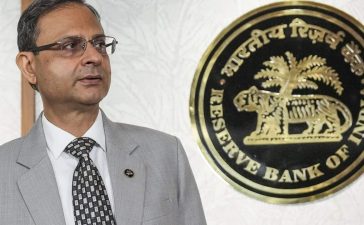
The fund house, the seventh largest in the 43-member strong mutual fund industry, has fallen out of investors’ favour of late on account of weak performances by its equity schemes and changes in the core team including key fund managers.
“In the last three months, things are getting better; our redemptions are down, and we are seeing positive sales in equity funds,” said Axis Mutual Fund’s CEO, B Gopkumar in an interview.
Axis Mutual’s assets under management grew 17% to ₹2.67 lakh crore in the last year when the industry grew 37%.
Analysts and distributors attributed the slower-than-average growth to weaker returns from some of its top equity schemes, which continued to follow the growth investment strategy even as investors moved to the value philosophy in the past three years. Allegations of front-running against its former chief trader and fund manager Viresh Joshi also partly impacted the confidence of investors and distributors in its equity schemes.
Gopkumar said the fund house is cognisant of the market realities and is adjusting its strategies without compromising on its core strengths.”Our style is the same, it’s just that we got much more diversified,” he said. “Our distributors sold growth and we also have a large conviction in it. But, we want to be a universal AMC, we want to look at value investing. Some work is happening there.”The asset manager, owned by Axis Bank and British investment house Schroders had equity-oriented assets of ₹1.71 lakh crore as of March 31, accounting for two-thirds of its assets under management. Now, it sees scope for growth in hybrids such as asset allocation funds and passive funds.
The fund house has less than a 2% market share in the hybrid space and a 1% share in the passive space, lower than other bank-led fund houses like ICICI, SBI, Kotak and HDFC.
“In uncertain times new money tends to move to hybrid funds, which helps investors in asset allocation, while passives are slowly catching up, ” said Gopkumar.
Wealth managers have criticised the fund house for having a concentrated stock portfolio with a higher overlap between schemes. Gopkumar said in the past year, its top equity schemes have reduced concentration and added more stocks to the portfolio, which now has 40-50 stocks and the top 10 stocks accounting for 40-50% from the peak of 60-65%.
Similarly, Axis Mutual is being led by an entirely new investment team, which has been put in place after the front-running fiasco. While Gopkumar was roped in from Axis Bank’s broking arm last year, Ashish Gupta, former research head of Credit Suisse India, was brought in as its chief investment officer (CIO).
Some of its top exits include Gopkumar’s predecessor Chandresh Nigam, head of equities Jinesh Gopani, and most recently chief business officer Raghav Iyengar.











